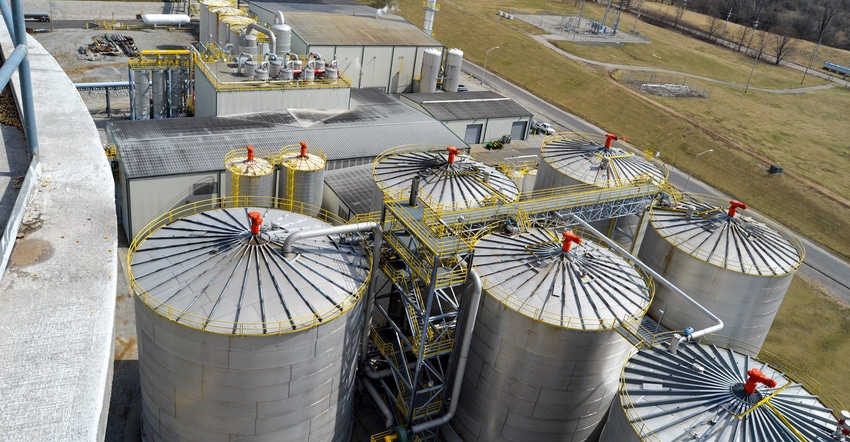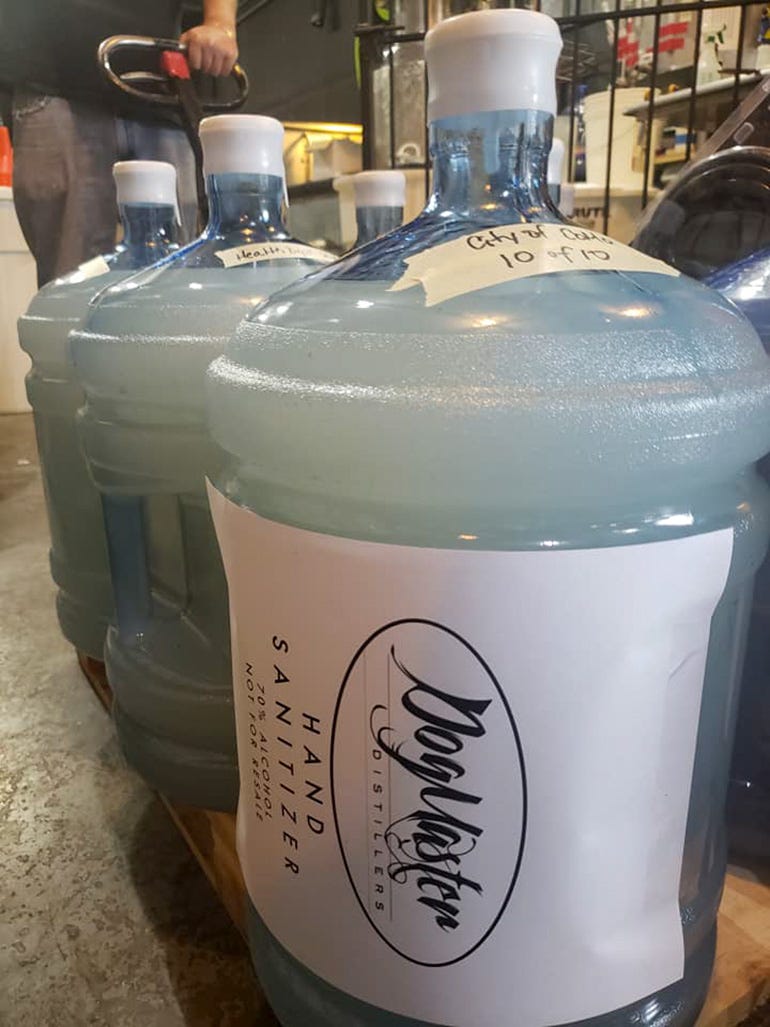
There may just be a new catchphrase in rural America: “When life gives you ethanol, you make industrial grade alcohol.”
It has not been an easy year for the ethanol industry — make that three years — says Brian Pasbrig, general manager of Show Me Ethanol. “Our industry is really suffering from the small refinery exemptions, trade wars and, in Missouri, two bad crop years in a row,” he explains. “And now COVID-19 made it worse with the decline in gas price demand.”
But he and his staff are done looking at the bleak side. When the coronavirus depleted the hand sanitizer supply in rural communities, this cooperative in Carrollton, Mo., did the one thing it could do — make industrial grade alcohol.
Related: Complete coronavirus coverage
Changing the ethanol plant
In only three weeks, Show Me Ethanol switched its process and produced 50,000 gallons of industrial alcohol for use in hand sanitizers.
They started small, blending to create 550 gallons of hand sanitizer for their local community and its first responders. Soon the phones began to ring.

NEW OPPORTUNITY: Show Me Ethanol sends its industrial grade alcohol to DogMaster Distillery in Columbia, Mo. From there, the locally owned distillery blends it to create its own hand sanitizer, which it offers to city health departments and first responders.

“I got a call from DogMaster Distillery in Columbia,” Pasbrig says. “Their tasting room was down, business closed, and they were looking for a way to survive and give back to the community as well.”
So, Show Me Ethanol sent over several thousand gallons of its industrial alcohol, and the distillery began making its own hand sanitizer. Today, Pasbrig and his employees supply for three distilleries in the state, as well as shipping the product across the country.
Looking out for employees
For Pasbrig, it is about providing for others, not only in terms of product but also jobs.
“For my employees, they really stepped up,” he says. “We had to change the way we operate, some of our production practices, quickly.” On top of learning a new process, Pasbrig says, they are practicing social distancing at the plant.
“They are coming to work, in a time where they may fear being infected, all to provide help for our local community," he says. "Our staff has taken a lot on. They are amazing.”
And their work does not go unnoticed. The Lafayette County Commission and Emergency Management offered its appreciation.
The effect of the plant’s decision to change production is felt across the state. “One of the best calls is from distillers who are calling employees back to the business to work,” Pasbrig says. “That has been a great part of this story. It is helping not just ethanol plants, but small businesses.”
Both enterprises know job creation and product markets could be short-lived. The FDA waiver allowing industrial grade alcohol to be made by plants and distillers sunsets June 20. But until then, these small-town businesses are turning a difficult time in their business into an opportunity.
“We have been doing our best to hang in there and keep spirits high,” Pasbrig adds. “Giving back during a time of crisis helps.”
Read more about:
Covid 19About the Author(s)
You May Also Like






